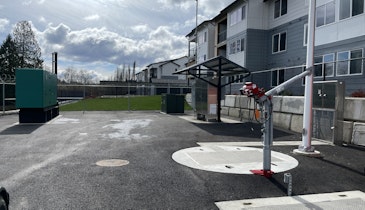Onsite designer and installer Bob Wright has a provocative “Perspective” column in this month’s issue: In his opinion, pump-to-gravity systems don’t make sense. I hope his strongly worded opinion sparks some discussion in the installer/designer/regulator ranks.
And while we’re at it, why don’t we lay on the table some other things about the industry that don’t seem to make sense? I will start the ball rolling from my viewpoint as more industry observer and chronicler than participant. Readers are free to agree or disagree with what I offer here.
Trials of technology
It doesn’t make sense to me that treatment technologies have to go through state-by-state approval process. A large number of aerobic treatment units and other kinds of systems have NSF certification. My logical brain says that should be enough. After all, secondary-treated water is secondary-treated water.
Of course, getting approval jurisdiction by jurisdiction seems endemic to anything related to construction. There are state and local differences in building, electrical and plumbing codes, for example, and presumably newer technologies in those areas also have to go stepwise through approvals.
That doesn’t necessarily mean the status quo in the onsite industry makes sense. It seems a lot of business and other opportunities go to waste because perfectly good technologies must wait their turn to get state approvals. Why isn’t NSF sanction enough?
Local control
And on the subject of local jurisdictions, it doesn’t make sense to me that onsite regulations often differ not by state but by county. We have profiled installers in this magazine who work across county lines and may have to know the vagaries of four or five different county onsite codes.
As a purely practical matter, why would a county want to create and administer an onsite code all on its own instead of just adopting a state code? It can’t be very easy to hire, train and retain a highly capable county onsite specialist. Why not just use the state code, make code compliance more uniform for installers and designers, and make life easier for the county staff in the bargain?
I know, local control, local pride, traditions, differences in geography – all those things are real. That doesn’t mean they make sense as justifications for county-by-county regulation of onsite treatment.
NOWRA has taken the discussion about uniform codes a bit farther than I have suggested here; a committee of that association has explored the idea of regional codes.
Credentialing hodgepodge
Finally, it doesn’t make sense to me that there are so many different installer credentials – or maybe more to the point, that more state installer associations don’t promote the existing Certified Installer of Onsite Wastewater Treatment Systems credentials sponsored by the National Environmental Health Association.
The Iowa Onsite Waste Water Association has embraced the NEHA credentials wholesale. It encourages members to acquire the credentials and asks counties to require them as conditions of doing business within their borders. Thus far, according to the IOWWA website, eight of the state’s 99 counties require installers to be NEHA-credentialed.
Numerous states have their own credentials, often basic and advanced levels, and there is every reason they should remain. They do reflect local soil and environmental conditions that are highly relevant to the proactive, and they convey another mark of professionalism.
But why not adopt, as an industry, the national credential as a basic benchmark for everyone in the installation business? If nothing else, it’s a way to help marginalize and weed out “installers” whose main stock in trade is cutting corners and competing on price with the true professionals.
All right, those are three things about the business that don’t make sense to me. Feel free to disagree and to argue the other side. Also feel free to tell us what you see going on in the business that doesn’t make sense to you. Send me a note to editor@onsiteinstaller.com. I promise to respond, and we will include a sampling of comments in an upcoming issue.





